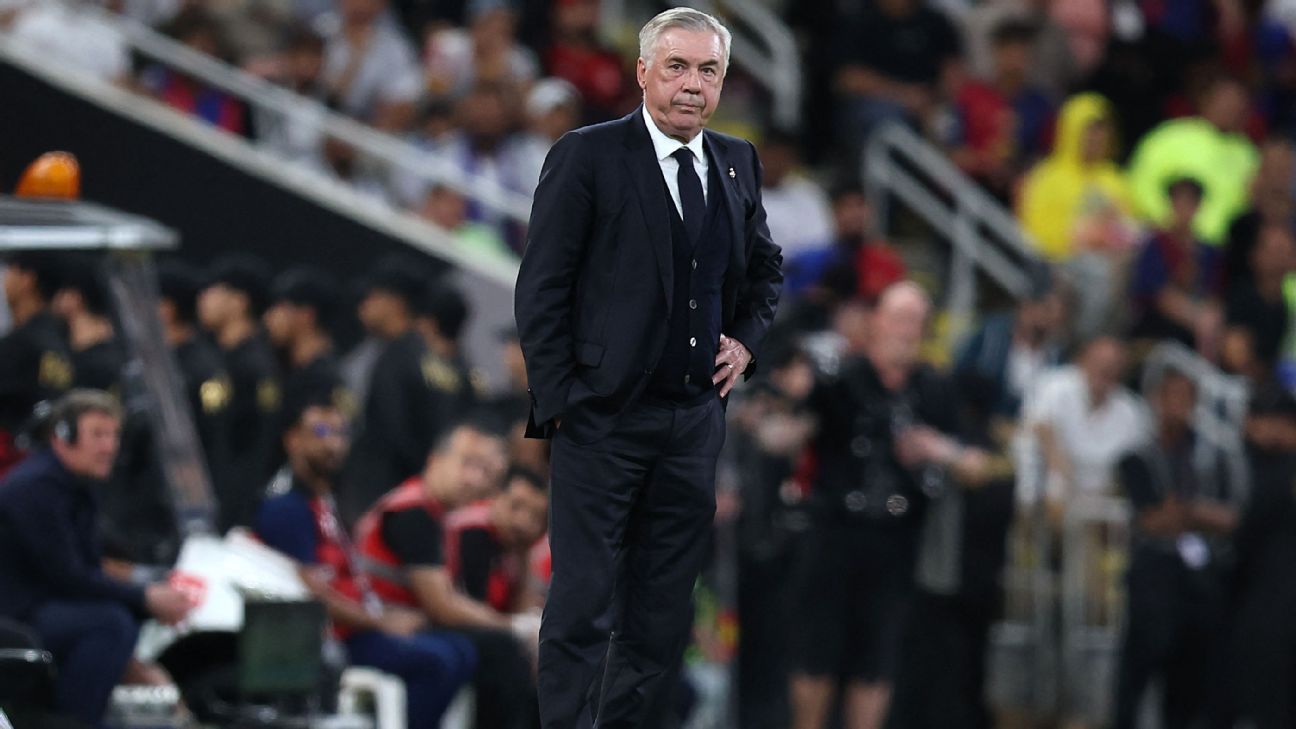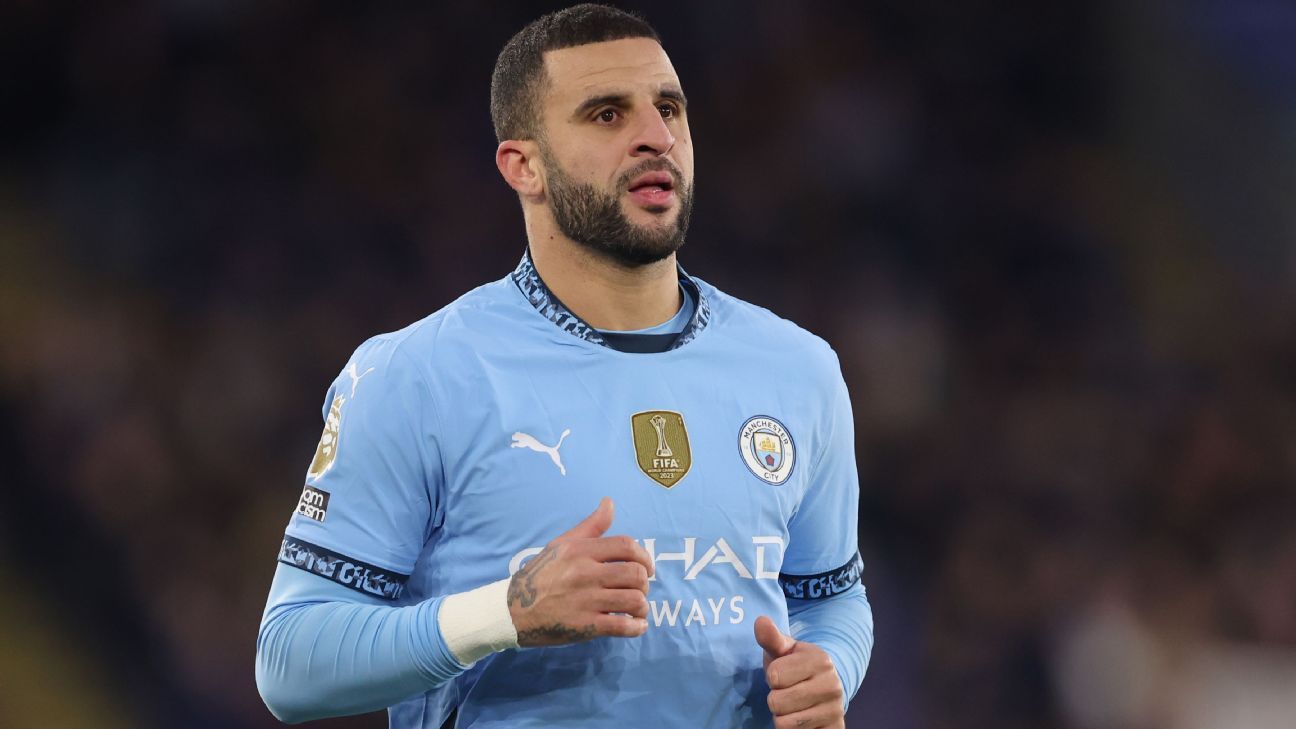
Tim Vickery, South America correspondentJan 20, 2024, 10:00 AM
The past and the future of football are enticingly entwined in the South American Under-23 Championship, which kick off in Venezuela on Saturday. The reference to the future is easy to understand.
This is a tournament for young players in a continent that probably produces more greats than anyone else in the world. Want to see 17-year-old sensation Endrick, already capped by Brazil at senior level and on his way to Real Madrid in the middle of the year? He will be in action.
- Stream on ESPN+: LaLiga, Bundesliga, more (U.S.)
Premier League fans will be intrigued by Argentina, with Brighton & Hove Albion's new signing Valentín Barco and Manchester City target Claudio Echeverri on duty. There are plenty of promising Uruguayans, such as Luciano Rodriguez, a breakout star last year. Chile have high hopes for teenage centre-forward Damián Pizarro. Ecuador's recent youth development work has been excellent -- who might stand out for them?
True, the squads are not at full strength. This tournament is not covered by FIFA dates, so clubs are not obliged to release their players. Predictably, few European-based youngsters will be in action, and even MLS is playing hard to get, with LAFC pulling Cristian Olivera out of the Uruguay squad. But, as always, the absence of one is opportunity for another -- especially because there is plenty at stake.
Come the end of the competition on Feb. 11, the top two countries will represent South America in the Paris Olympics -- and this is where the importance of the past comes in.
The Olympic football tournament is a big deal in South America. This is the sport at which the continent excels. By way of example, for the home public the high point of the Rio Games in 2016 was the Neymar penalty, which meant that Brazil had finally won the football gold medal, the title which was missing to complete the set of gold, silver and bronze. In the entire history of the Summer Olympics, the only medal that Paraguay has won was silver in the football tournament of 2004, runners-up to Argentina.
Uruguay's only two gold medals came from football -- in 1924 and 1928, a history which will live on in the design of the shirts the Uruguayans will be wearing in the next few weeks. In a quiet, largely forgotten way, those two gold medals, and especially the groundbreaking first, continue to glitter all around the planet -- even in the current competitions taking place in Africa and Asia.
Uruguay arrived unheralded for the Paris Games of 1924. They represented a tiny country from the other side of the Atlantic -- and ended up cruising to the gold medal, winning all their matches with an accumulated score of 20-2. It was not just what they did. It was the way that they did it. The French press and public were hypnotised.
Gabriel Hanot, a journalist of enormous influence who watched Uruguay at the 1924 Olympics, wrote that the Uruguayans "created a beautiful football, elegant but at the same time varied, rapid, powerful and effective... they have pushed towards perfection the art of the feint and the dodge, but they also know how to play quickly and directly."
English professionals, of course, could not play in the Olympics, and were still widely seen as the best around. Were they better than these Uruguayans? There was only one answer -- a World Cup, open to amateur and professional alike. When Uruguay won another gold medal in Amsterdam four years later -- beating Argentina in the final -- the birth of the World Cup became an inevitability. It was hosted -- and won -- by Uruguay in 1930, and a tradition had been founded.
Marcelo Bielsa's Uruguay players, then, have a lot to live up to over the next few weeks. This is not any Olympic football tournament. It celebrates the centenary of what arguably was the birth of the modern age of the global game, in the same city as the historic events of 1924.
Uruguay will feel an obligation to qualify, and are able to promote a number of players who won the 2023 FIFA U-20 World Cup. But there are only two slots available. If Uruguay are to make it, then Brazil or Argentina will miss out. Colombia will be strong, Ecuador have plenty of talent, Venezuela will want to maintain their recent momentum and do well in front of their own fans.
The 2024 South American Under-23 Championships look well worth following in their own right -- all the more so given the way that the tournament will reveal a little bit of football's future while also venerating its past.
 (1).png)
 11 months ago
26
11 months ago
26

















